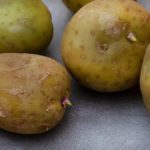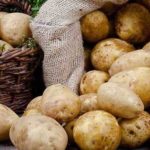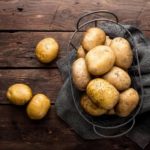Potatoes are a familiar food for families. People usually buy potatoes and store them at home for later use. However, if potatoes are kept in a warm and humid environment, they will sprout. Sprouted potatoes can be toxic for consumption as they contain solanine, a dangerous compound.
Many people refrigerate their potatoes. However, the low temperature of the refrigerator can affect the taste of this food. Instead of refrigerating, you can store potatoes using the following methods.
Store potatoes in a dark place
To prevent potatoes from sprouting, you need to keep them in a dry, cool, and dark place. The simplest way is to put potatoes in a paper bag with holes. The paper bag avoids light and allows good ventilation, preventing moisture buildup. You can also put potatoes in a black plastic bag, squeeze out all the air, tightly seal the bag, and store it in a dry place. This way, you can keep potatoes fresh for about 2-3 months.
Use baking soda
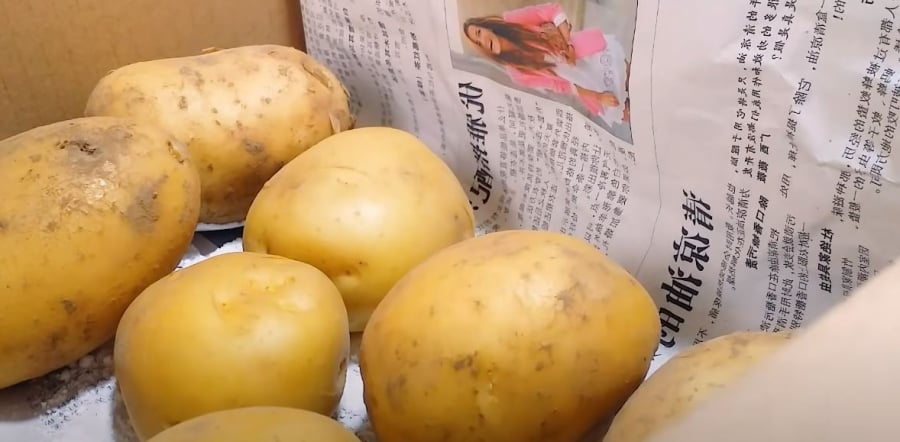
You can use a cardboard box, newspaper, and baking soda to store potatoes.
Potatoes sprout quickly in a moist environment. Therefore, you need to keep them in a dry place.
Prepare a clean cardboard box and line it with a few sheets of newspaper at the bottom. Then, place the potatoes in the box and sprinkle baking soda on top. The cardboard box, newspaper, and baking soda all help absorb moisture, keeping the potatoes dry. The cardboard box also helps block light and inhibit the sprouting of potatoes.
If you have multiple potatoes, simply layer potatoes with a layer of baking soda and place a layer of newspaper on top. Repeat this process until you have used all the potatoes.
Store potatoes with apples
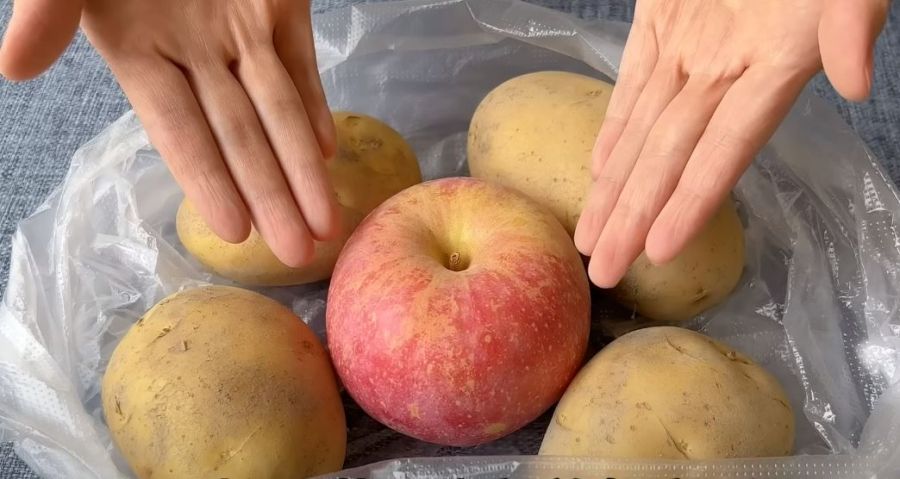
Storing potatoes with apples also helps inhibit potato sprouting.
Naturally emitted ethylene gas from ripe apples can slow down or stop the sprouting process of potatoes, helping them stay fresh for a longer time.
You just need to put potatoes in a plastic bag, then add apples and tightly seal the bag. Store the bag of potatoes in a dry, cool, and dark place, away from direct light. Regularly check the condition of the potatoes and apples during the storage process.
Note that ethylene in apples and other ripe fruits can promote ripening and spoilage of many vegetables, especially onions, cucumbers, cauliflower, peaches, and other fruits. Therefore, you should store these foods separately.

























